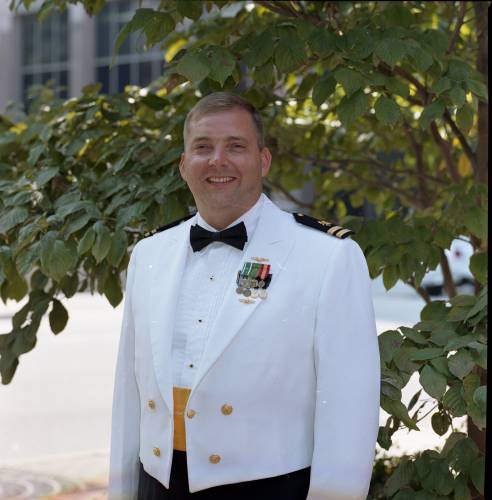War and Peace: A short reflection
A veteran’s view of peacemaking
By Charlie Pratt
The deliberations in the 222nd General Assembly’s Peacemaking and International Issues Committee were long but exciting. As an observing student, I tried my best to keep quiet during the debate on overture 12-06, “Risking Peace in a Violent World: Five New Peacemaking Affirmations.”
The biggest bone of contention was over the inclusion or exclusion of the term just war in the list of church traditions by which we are guided in our discernment. I was merely an observer without a voice at the table, but because I served in the military, this issue hit home for me.
Radical love for our neighbor means that I would be willing to use any means at my disposal to protect them, even if that means I would ever after bear the burden of my choices.
Each of us who carries a rifle in a war zone is marked by that decision forever. For a Christian, at least for this Christian, there is an overwhelming awareness of making a morally questionable decision when you pick up that rifle. Even the lesser of two evils is still a horrific choice.
The Ten Commandments say, “Thou shalt not kill.” However, the Bible also tells us over and over to protect the defenseless, even at the risk of our own well-being. Those who serve are thus forced to choose between a sin of commission when we pick up that rifle or a sin of omission when we see the innocent slaughtered on the nightly news feeds
Neither is ever going to be a satisfying choice.
I came to the realization that there are many, many things for which I am wiling to stand, lots of things for which I have been known to argue or to fight. There are even a few things for which I would be willing to lay down my life, but there is only one thing for which I am willing to kill.
For me, protecting the innocent is our highest calling. Radical love for our neighbor means that I would be willing to use any means at my disposal to protect them, even if that means I would ever after bear the burden of my choices.
I think our Presbyterian focus on prayerful listening, discernment, and respect for people who act out of conscience, even when we disagree with their chosen actions, is critically important when examining the various sides in this issue.
We heard from a number of military chaplains during the GA debate. They said that our Presbyterian commitment to radical love, even for those with whom we disagree, is critical to the pastoral care and healing of our veterans returning home from the war. I would agree, since the love and support of my church family along with my wife were the keystones to my own healing.
There are no stronger proponents for peace than those of us who have seen the face of war. The committee’s action made clear that violent options are the absolute last resort, but also recognized that sometimes they might be an abhorrent but valid response to our call to engagement in the world.
There was an overwhelming current of pastoral concern for those who make the difficult decision to serve. There was also a clear acknowledgment of the need to support and care for those veterans when they return home.
In the end, I rest in the sure knowledge that Jesus loves me. What helped me come the rest of the way home from my war was learning – largely through the support of the members of John Knox Presbyterian Church in Greenville, South Carolina – not just that Jesus loves me, but that Jesus loves me unconditionally, even when I am acutely aware that I don’t deserve it.
Charlie Pratt is a graduate of the U.S. Naval Academy and a current student at Union Presbyterian Seminary. He served in the US Navy from 1986 to 2007, completing his service at the rank of Lieutenant Commander. He was part of Operation Iraqi Freedom in 2005.